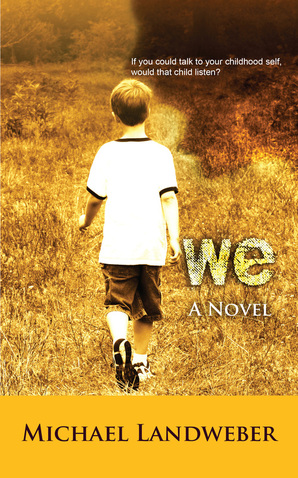Reviewed by Laura Rock

A news report snags our attention: humanitarian aid workers kidnapped by one of the warring factions of a foreign conflict zone. The story seems familiar. We follow its progress lazily, assuming that we understand the motivations of the good guys and bad guys—and which are which—until the hostages are rescued and flown home to fanfare.
In The Colonial Hotel, Jonathan Bennett’s accomplished third novel, this global narrative is upended, challenging conventional wisdom about…well, about everything that matters: love, faith, knowledge, power, war and storytelling itself. Helen, a nurse, seeks the most difficult postings as her way to serve God and, perhaps, evade the damage of her past. Paris, a doctor, gives up a promising medical career to follow Helen from one developing country to the next, where he treats patients to the best of his ability given inadequate resources. During a respite at the Colonial Hotel, the couple is captured by rebel soldiers in an attack that may not have come as a surprise to some of the foreigners staying at the hotel. While Helen, pregnant with Paris’s child, is released soon after they are taken, Paris’s ordeal is just beginning. Enter Oenone, the healer whose traditional methods contrast with western medicine. She has the courage to defy a warlord and the strong-minded goodness to transform a village.
In The Colonial Hotel, Jonathan Bennett’s accomplished third novel, this global narrative is upended, challenging conventional wisdom about…well, about everything that matters: love, faith, knowledge, power, war and storytelling itself. Helen, a nurse, seeks the most difficult postings as her way to serve God and, perhaps, evade the damage of her past. Paris, a doctor, gives up a promising medical career to follow Helen from one developing country to the next, where he treats patients to the best of his ability given inadequate resources. During a respite at the Colonial Hotel, the couple is captured by rebel soldiers in an attack that may not have come as a surprise to some of the foreigners staying at the hotel. While Helen, pregnant with Paris’s child, is released soon after they are taken, Paris’s ordeal is just beginning. Enter Oenone, the healer whose traditional methods contrast with western medicine. She has the courage to defy a warlord and the strong-minded goodness to transform a village.
 Jonathan Bennett, Author of 'The Colonial Hotel'
Jonathan Bennett, Author of 'The Colonial Hotel' What does it mean to be good? This book grapples with morality and self-sacrifice. Is it sufficient to treat the victims of war while staying at a safe remove from the politics and poverty that contribute to their wounds? Is it “good” to be helpful to the point of playing an unwitting role in someone else’s insurrection? Helen’s impulse to help is ostensibly religious, yet she acknowledges other, selfish, motivations. Of her attraction to nursing in dangerous situations, she says, “This is my daily overdose attempt. My open cry for God’s love. It keeps me free and others away.” Paris, an agnostic, manifests different kinds of goodness: as someone deeply, patiently, in love; as a prisoner in grindingly oppressive circumstances; as a father.
Fatherhood figures prominently in The Colonial Hotel, as it does in Bennett's earlier novels and stories. Paris imagines an alternate life with his unnamed daughter, willing himself to construct every mundane act of parenting and by doing so, preserve his memories of Helen; suppress his doubts about Helen. Locked in his quiet prison cell, he hears the booming voice of his own father, finding traces of the man in isolation and illness, and in the consideration of time and dreams. Paris tells his daughter:
Fatherhood figures prominently in The Colonial Hotel, as it does in Bennett's earlier novels and stories. Paris imagines an alternate life with his unnamed daughter, willing himself to construct every mundane act of parenting and by doing so, preserve his memories of Helen; suppress his doubts about Helen. Locked in his quiet prison cell, he hears the booming voice of his own father, finding traces of the man in isolation and illness, and in the consideration of time and dreams. Paris tells his daughter:
As time dissolved, the structured way of living in the world did too. Was I still myself, Paris? Or was I some earlier or future version of myself? Was I just a continuum of a person, a man that had always existed down through the ages, like a roadway built long ago by an ancient civilization that never fell out of daily use? As each age came and passed, did the road survive, always receiving and guiding those in need of getting from one place to the other? If so, it is in this way that I survived and could be with you when we were kept apart, and know I could stay with you in the future.
The story is narrated by three intertwined voices, each explaining events to a child. As the horrifying losses of war mount, Paris, Helen and Oenone record their versions of the truth, and their lines of testimony brush against one another in moving and unexpected ways. It is a tribute to Bennett’s spare, fluid prose that the narration never feels repetitive or confusing. His skill as a poet is much in evidence here. What is distilled in this structure is the poignant message transmitted from parent to child: know me; this is why; keep our story going. Oenone says:
I will give it over, from my lips to your small ears. I will tell it to you in the mornings as we eat fruit, and when as mother and daughter we wander down to the beach to collect smooth amber glass and seashell halves. I will sing it to you as you slip into sleep. I will tell it often, and in many different ways, until it becomes a part of you. This is the mother’s way of telling stories. This way is more permanent than writing, which may be lost or sold, or burned by others.
The power and use of words is a matter of grave concern to Paris. He warns his daughter not to receive his account—of the civil war, but also of his relationship with Helen—as authoritative. In writing what happened to him, Paris wants to avoid harming those whose wartime grievances and crimes he cannot judge. “I must leave this country as unidentifiable as I can, to spare everyone here the indignity of having me record their struggles in a language they don’t use,” he writes. “This isn’t evidence.”
By setting the novel in an unspecified country, and by using the ancient tale of Paris and Helen in the Trojan War as a springboard to the present, Bennett offers universality even as the particular sorrows and joys of his characters are revealed. Readers might quibble with Helen’s religious leanings, which at times seem unformed, but that is a small thing. On the whole these characters and their journey are utterly compelling.
What will happen to the denizens of the imploding country after the international media have forgotten about them and moved on? Read The Colonial Hotel to find out.
By setting the novel in an unspecified country, and by using the ancient tale of Paris and Helen in the Trojan War as a springboard to the present, Bennett offers universality even as the particular sorrows and joys of his characters are revealed. Readers might quibble with Helen’s religious leanings, which at times seem unformed, but that is a small thing. On the whole these characters and their journey are utterly compelling.
What will happen to the denizens of the imploding country after the international media have forgotten about them and moved on? Read The Colonial Hotel to find out.

Laura Rock’s fiction and essays have appeared in Canadian and Irish publications, winning several awards. She lives in Lakefield, Ontario.
Follow Laura on Twitter: @laurairock
Follow Laura on Twitter: @laurairock


 RSS Feed
RSS Feed

